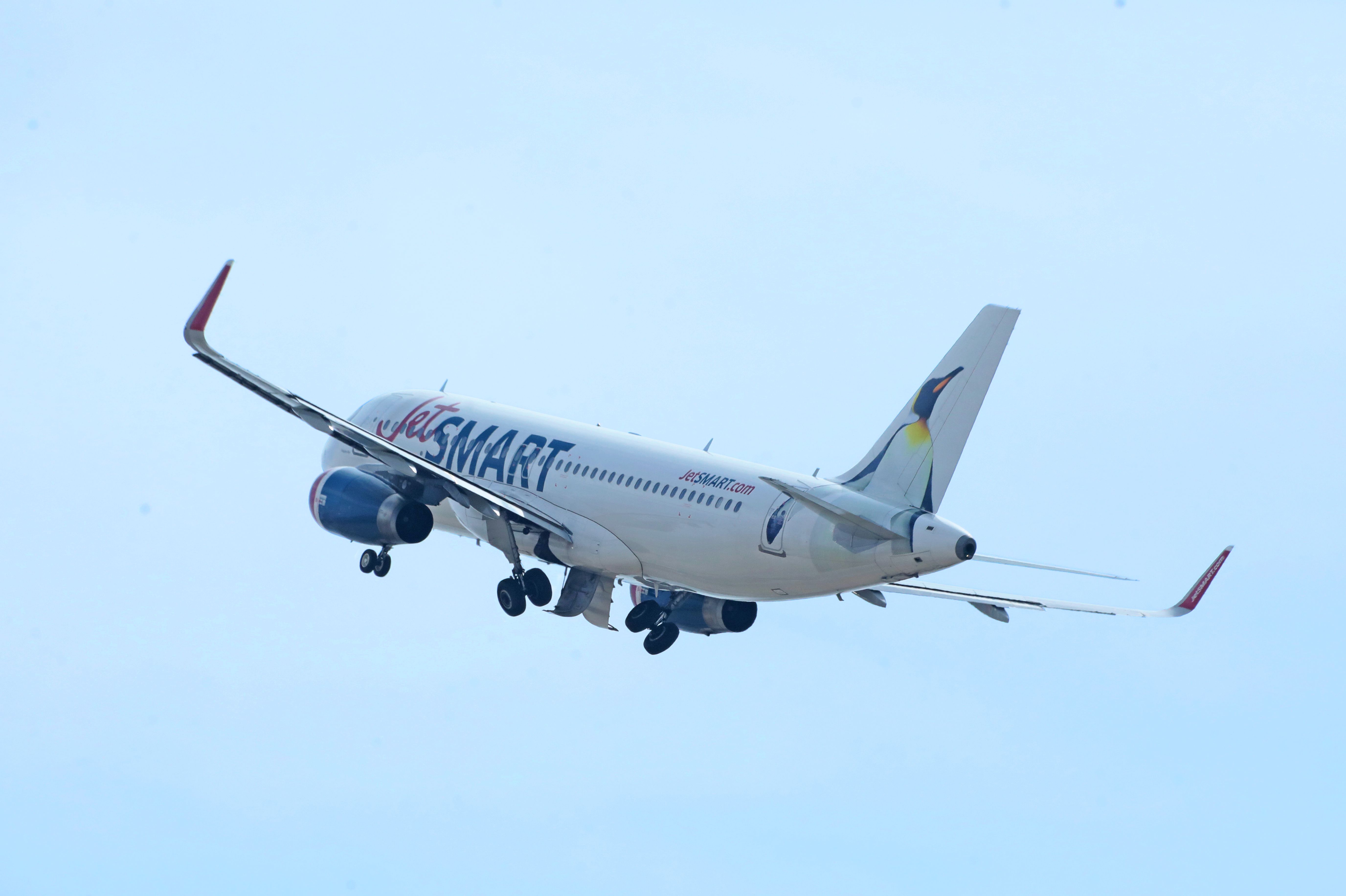The South American ultra-low-cost carrier JetSMART has announced the future launch of its 70th route in Latin America, flying between Ezeiza International Airport (EZE) in Buenos Aires, Argentina, and Silvio Pettirossi International Airport (ASU) in Asunción, Paraguay. JetSMART will debut this route in November 2022.
New route
On Thursday, JetSMART announced that, as of November of this year, it will begin operating the route between the cities of Buenos Aires and Asunción del Paraguay. This new route constitutes another milestone in the growth plan in the region, said the airline, adding it has a vision of connecting 100 million people by 2028 across South America. The route is almost entirely uncontested; only Paranair flies between EZE and ASU four times a week (although Aerolíneas Argentinas and Paranair also operate several flights per week between Buenos Aires and Asunción, flying from the Jorge Newbery Airfield).
Estuardo Ortiz, Chief Executive Officer at JetSMART, said this announcement is significant for the ULCC “because it reflects in many ways our way of working, our progress and the realization of our purpose, which is to help more people travel long distances, in a short time and on time, in new and safe aircraft, at affordable prices.”
A new served country
JetSMART began as a Chilean ultra-low-cost carrier based in Santiago de Chile’s Arturo Merino Benitez International. Throughout the years, the airline has expanded to Argentina and lately to Peru, launching domestic services in these countries as well. Employing its fleet of 18 Airbus A320-family-based aircraft (six in Argentina, nine in Chile, and three in Peru), the low-cost operates around 414 weekly flights and serves destinations across these three countries, Brazil, Colombia, Paraguay, and Uruguay.
When Asunción becomes JetSMART’s newest destination, it will be the 12th international route for the carrier. “In just six years, we have achieved an important offer throughout the region, and we continue to develop a fleet of aircraft that allows us to have an efficient operation to offer affordable prices so that more people can fly,” said Estuardo Ortiz, who also added that “JetSMART's proposal has come to change the travel culture in South America and more than 12 million passengers have already trusted us to travel to connect with their loved ones, with their jobs or to see places they had never seen before.”
Incoming fleet
Earlier this month, JetSMART received its first Airbus A321neo, registration CC-AWT. This aircraft, which has the livery of a humpback whale on its tail, promoting an alliance to protect the endangered animal, recently began flying in Chile. It has 240 Recaro SL3170 economy class seats.
Discover more aviation news here.
But the airline expects to receive many new jetliners in the near future. JetSMART expects to have a fleet of 100 aircraft by 2028; it currently has one of the largest narrowbody orders with Airbus in the Americas, expecting to receive 109 planes, including 49 Airbus A320neo, 46 Airbus A321neo, and 14 Airbus A321XLR. These units will allow the ultra-low-cost carrier to become one of the fastest-growing companies in the region and launch new routes, for example, flying between Santiago de Chile and Miami in a non-stop service onboard a single-aisle jet.
Have you ever traveled with JetSMART? How was the experience? Let us know in the comments below.



-1.jpeg)